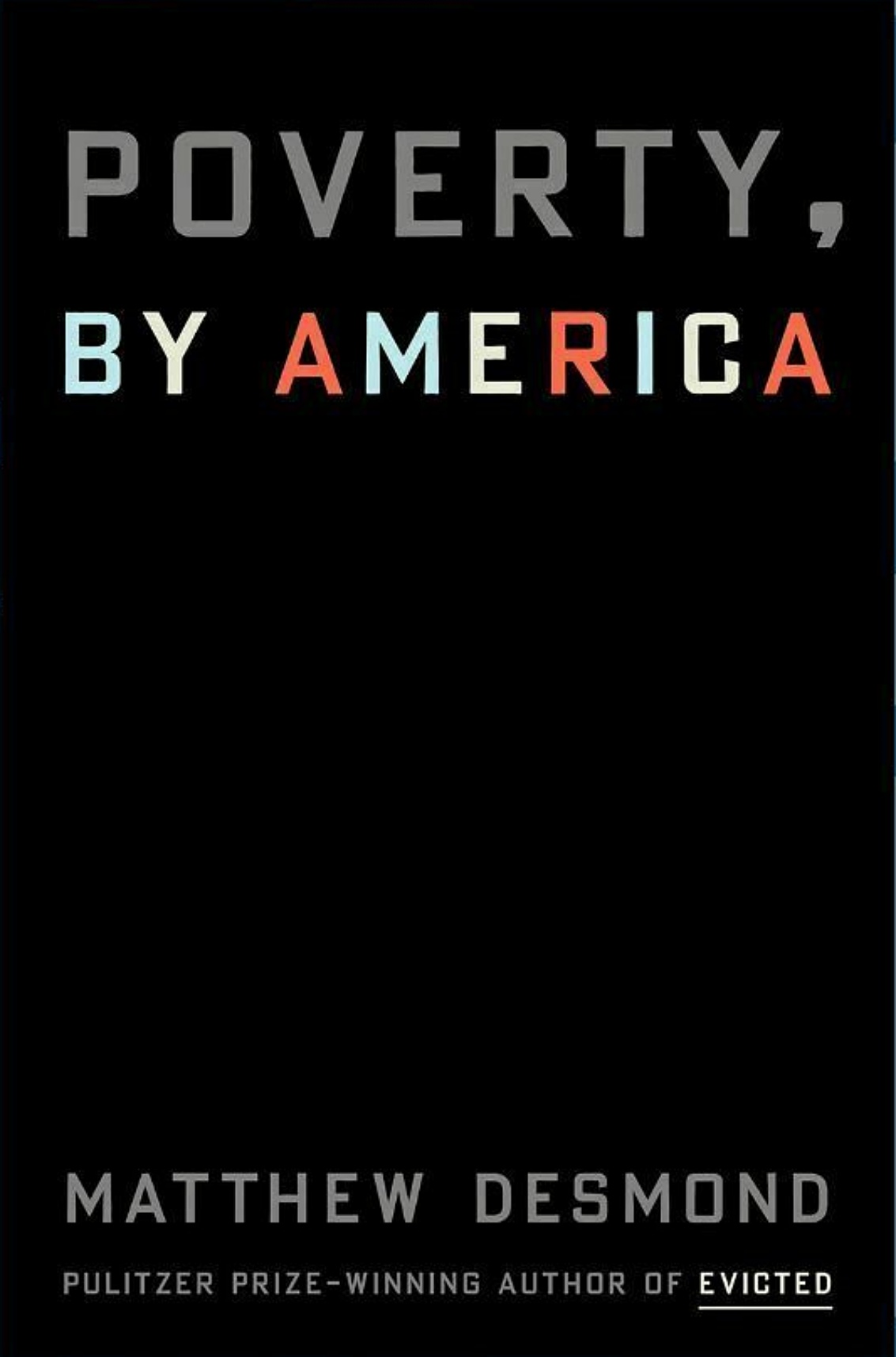 By Matthew Desmond
By Matthew Desmond
Matthew Desmond has written a powerful, compelling complement to his 2017 Pulitzer Prize winning Evicted: Poverty and Profit in the American City.
The son of a pastor, Desmond begins Poverty, By America by telling a personal story. When Desmond was young, his father lost his job, and the house he loved was taken by the bank. Even then, Desmond questioned “why this was our country’s answer when a family fell on hard times”. This experience sets the stage for what The New York Times calls “a compact jeremiad on the persistence of extreme want in a nation of extraordinary wealth.”
And like Jeremiah, who railed against a nation in crisis, Desmond calls out America and Americans. It’s not just the sobering statistics:
- More than 38 million people living in the United States who cannot afford basic necessities
- More than a million of our public school children
homeless - More than 2 million Americans without running water or a flushing toilet
- 18 million people in the United States live in “deep poverty,” a single person having an income of less than $6,380 or a family of four with less than $13,100.
It’s also that poverty is “a piling on of problems.”
Why, in a country so abundantly wealthy, does such poverty persist? The uncomfortable reason: “Poverty persists because some wish and will it to…. One man’s poverty [is] another man’s profit.”
Desmond shows three broad ways Americans “will” poverty’s persistence: “First, we exploit the poor…. Second, we prioritize the subsidization of affluence over the alleviation of poverty…. Third, we create prosperous and exclusive communities.”
Exploitation happens when people are less free to make choices or when productivity benefits corporate CEOs and shareholders but not those producing the profit. Exploitation exists also in the housing and banking sectors.
Furthermore, Desmond argues that poverty persists because our country does more to keep the wealthy rich than to remove the burden of the poor. The wealthy receive more in benefits from the government than do the poor–through home mortgage taxes, capital gains taxes, Roth IRAs, 529 savings plans. The “average household in the bottom 20 percent receives roughly $25,733 in government benefits a year, while the average household in the top 20 percent receives about $35,363.”
Desmond also shows how the concentration of private, exclusionary wealth, robs the public square, so that the rich, who rarely use public facilities, grow less interested in supporting projects for the public good, which the poor use more often.
Desmond rails most forcefully against the usual response in resisting efforts to abolish poverty: “How can we afford it?”
With the zeal of a preacher’s son (or an Old Testament prophet), Desmond calls that question “sinful [and] dishonest.” “We could afford it,” he writes, “if we allowed the IRS to do its job. We could afford it if the well-off among us took less from the government.
We could afford it if we designed our welfare state to expand opportunity and not guard fortunes.”
Such dishonesty perpetuates the “big lie” of scarcity amidst plenty. And though he doesn’t make the connection overtly, Desmond recalls another “big lie” called out by Frederick Douglass in his Farewell to the British People, the lie of equality in America: “The fact is, the whole system, the entire network of American society, is one great falsehood, from beginning to end.”
And so, like Douglass the abolitionist, Desmond calls for “poverty abolitionists.”
Desmond recognizes the obstacles such abolitionists will confront: a deeply divided nation with an equally divided government. Despite division, vitriol and war, slavery was abolished in the 19th century, and despite 100 years of backsliding and rancor, equality was bolstered by civil rights legislation, voting rights and elements of the Great Society.
Though abolition will stir backlash, Desmond shows that government funding can be found and put to work. During Covid, for example, funding helped cut child poverty by more than half. Furthermore in 2021 (upon emerging from the pandemic) there were about 16 million fewer Americans in poverty than in 2019 (before the pandemic).
Desmond’s book is a moral call to action, joining antipoverty movements such as People’s Action or Poor People’s Campaign or even newspapers such as Works in Progress. Desmond believes that social action, accompanied by imagination and vision, can lead to the abolition of poverty.
Desmond’s book is important, and will make readers squirm, as a jeremiad should. But Poverty, By America does not simply shed light on the persistence of poverty; it provides a way forward through moral vision and a redirecting of will.
Eddie Dupuy lives in San Antonio, TX. He and his wife will move to Tacoma this summer to be near family.
Be First to Comment